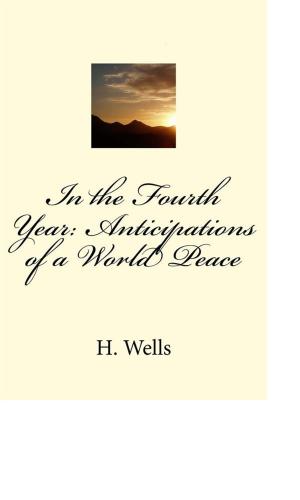| Author: | C. Creighton Mandell and Edward Shanks | ISBN: | 1230002860114 |
| Publisher: | anamsaleem | Publication: | November 15, 2018 |
| Imprint: | Language: | English |
| Author: | C. Creighton Mandell and Edward Shanks |
| ISBN: | 1230002860114 |
| Publisher: | anamsaleem |
| Publication: | November 15, 2018 |
| Imprint: | |
| Language: | English |
Edward Richard Buxton Shanks (11 June 1892 – 4 May 1953) was an English writer, known as a war poet of World War I, then as an academic and journalist, and literary critic and biographer. He also wrote some science fiction.
He was born in London, and educated at Merchant Taylors' School and Trinity College, Cambridge. He passed his B.A. in History in 1913. He was editor of Granta from 1912–13. He served in World War I with the British Army in France, but was invalided out in 1915, and did administrative work until war's end.
He was later a literary reviewer, working for the London Mercury (1919–22) and for a short while a lecturer at the University of Liverpool (1926). He was the chief leader-writer for the Evening Standard from 1928 to 1935.
The People of the Ruins (1920) was a science-fiction novel in which a man wakes after being put into suspended animation in 1924, to discover a devastated Britain 150 years in the future.[1] The People of the Ruins has an anti-communist subtext (the future 1924 is devastated by Marxist revolutionaries).
Edward Richard Buxton Shanks (11 June 1892 – 4 May 1953) was an English writer, known as a war poet of World War I, then as an academic and journalist, and literary critic and biographer. He also wrote some science fiction.
He was born in London, and educated at Merchant Taylors' School and Trinity College, Cambridge. He passed his B.A. in History in 1913. He was editor of Granta from 1912–13. He served in World War I with the British Army in France, but was invalided out in 1915, and did administrative work until war's end.
He was later a literary reviewer, working for the London Mercury (1919–22) and for a short while a lecturer at the University of Liverpool (1926). He was the chief leader-writer for the Evening Standard from 1928 to 1935.
The People of the Ruins (1920) was a science-fiction novel in which a man wakes after being put into suspended animation in 1924, to discover a devastated Britain 150 years in the future.[1] The People of the Ruins has an anti-communist subtext (the future 1924 is devastated by Marxist revolutionaries).















